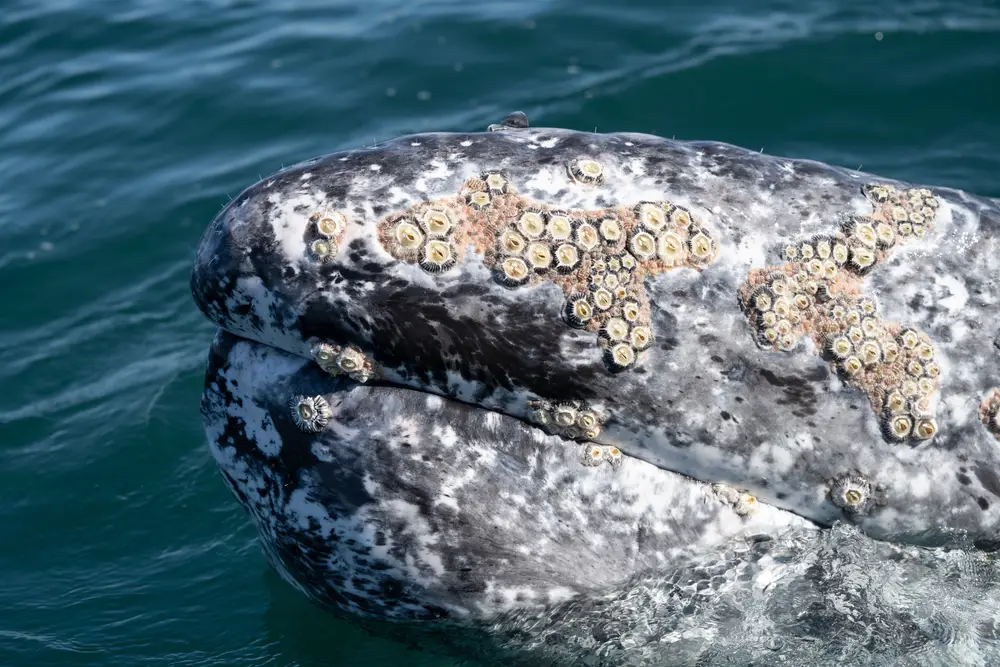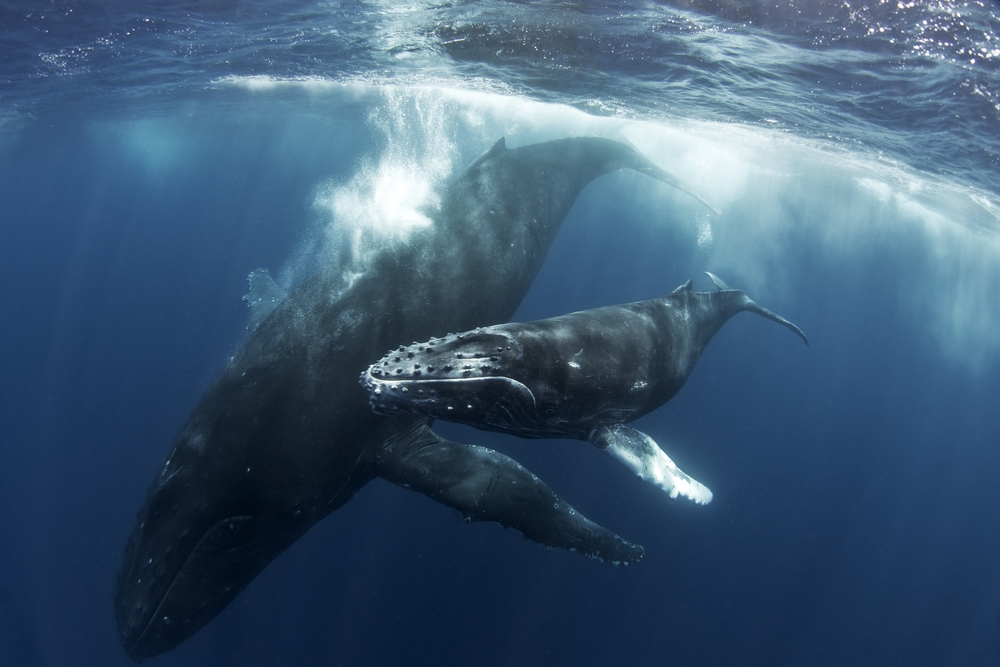Whales have long fascinated us with their sheer size and mysterious ocean-dwelling ways, but recent scientific discoveries suggest these majestic creatures might also hold the key to revolutionary advancements in human medicine. From their ability to heal swiftly to their impressive longevity, whales exhibit unique biological traits that researchers are eager to decode. Here are 13 captivating ways these gentle giants could transform healthcare and deepen our understanding of human biology.
1. They Are Cancer Resistant

Whales, despite their massive bodies and long lifespans, have remarkably low cancer rates. This anomaly has led scientists to study their genetics for clues about cancer resistance. Researchers at the University of Chicago found that bowhead whales possess genes related to cell growth and DNA repair that could offer insights into cancer prevention in humans. By understanding these mechanisms, you might be closer to groundbreaking cancer therapies that leverage nature’s own designs.
Imagine applying these biological insights to develop treatments that enhance our cellular repair systems. The goal isn’t just to treat cancer but to prevent it at the genetic level. Such advancements could revolutionize oncology, making cancer as rare in humans as it seems to be in whales. As we continue to unlock these mysteries, the potential for medical breakthroughs is immense.
2. They Have Next Level Longevity

The bowhead whale is known for its extraordinary lifespan, with some living well over 200 years. Scientists are intrigued by how these creatures age so slowly, maintaining health during their long lives. By studying whale DNA, researchers hope to unravel the secrets of extended longevity and apply them to human aging. Imagine a future where people not only live longer but healthier lives, with age-related diseases like Alzheimer’s becoming rarer.
This longevity isn’t just about lifespan but also about healthspan—the period of life spent in good health. If researchers can pinpoint the genetic factors that contribute to the whales’ slow aging, they could potentially develop therapies to slow aging in humans. Such advancements would not only increase life expectancy but also enhance the quality of life in our later years. It’s a tantalizing prospect that invites us to rethink what aging means on a biological level.
3. They Have Wound-Healing Abilities

Whales have a remarkable ability to recover from wounds, a trait that scientists are eager to understand. Their blubber, which is rich in fats and oils, seems to play a significant role in their healing process. According to a study published in the journal Marine Mammal Science, whale blubber contains unique properties that promote rapid healing and tissue regeneration. By studying these processes, we could potentially improve human wound care and recovery methods.
Imagine using insights from whale biology to develop better treatments for injuries and surgical recoveries. Faster healing times could drastically improve outcomes for patients, reducing complications and hospital stays. Such breakthroughs could be particularly beneficial in treating those with chronic wounds or compromised healing abilities. The promise of applying such natural wisdom to medicine opens up exciting possibilities for healthcare.
4. They Have Robust Immune Systems

The immune system of whales is adapted to protect them from a wide array of oceanic pathogens. This robust system has evolved to keep them healthy despite their massive size and diverse habitats. Researchers are studying whale immune responses to understand how they fend off illnesses that might otherwise plague such large creatures. By decoding their immune strategies, we could enhance our own immune responses, potentially leading to new vaccines and treatments.
These discoveries could lead to innovative ways to bolster human immunity against infectious diseases. Imagine a world where flu seasons are less severe and pandemics are more manageable, thanks to insights from whale biology. As we face increasing global health challenges, such knowledge could be invaluable. The more we learn from these sea giants, the better equipped we may be to protect our own health.
5. They Have Advanced Brain Functionality

Whales are known for their complex vocalizations, which suggest advanced brain functions and social structures. Their ability to communicate over great distances has intrigued neuroscientists looking to understand the relationship between brain structure and communication. A study in Nature Communications found that certain whale species have spindle neurons associated with complex social behaviors and advanced cognition. By studying these neurons, researchers hope to gain insights into brain health and conditions like dementia.
You might wonder how whale communication links to human neurological health. Understanding the brain structures that enable such communication could offer clues to preserving cognitive function as we age. Imagine therapies that could enhance brain health and stave off cognitive decline, inspired by the social complexities of whale pods. As we decode these mysteries, the potential applications for human health are vast and promising.
6. They Use Oxygen Wisely

Whales have mastered the art of oxygen efficiency, diving to great depths with a limited air supply. They can slow their heart rates and redirect blood flow, optimizing oxygen use during deep dives. This remarkable adaptation has piqued the interest of scientists studying cardiovascular health. By mimicking these physiological strategies, we could improve treatments for heart and lung conditions, enhancing oxygen delivery and consumption in humans.
Imagine therapies that allow people with respiratory issues to breathe easier and live more active lives. These adaptations could also inspire new approaches to managing conditions like heart disease, where oxygen efficiency plays a crucial role. The lessons we learn from whales’ diving prowess could lead to significant advancements in medical technologies and treatments. As we explore these possibilities, the future of cardiovascular health seems particularly bright.
7. They Shed Their Skin

Whales regularly shed their skin, a process that keeps them free of parasites and infections. This natural exfoliation has led researchers to explore its potential applications in dermatology. A study published in The Journal of Experimental Biology found that the rapid skin regeneration in whales could offer insights into skin health and treatment for conditions like psoriasis. By understanding these mechanisms, we could develop new skincare treatments that promote healthier skin.
Imagine skincare products that mimic whale skin regeneration, offering solutions for persistent skin conditions. Such products could revolutionize dermatology, providing relief for millions who suffer from chronic skin issues. The potential to harness this natural process for human benefit is an exciting frontier in skincare research. As we delve deeper into how whales maintain their skin health, new treatments and products may emerge, changing the landscape of dermatology.
8. They Have Deep-Dive Pressure Tolerance

Whales can plunge thousands of feet below the ocean surface without suffering from decompression sickness, a feat that has fascinated physiologists. Their bodies are equipped to manage extreme pressure shifts that would crush most other mammals. This ability offers critical insights for improving human diving safety and for treating pressure-related injuries. Scientists are now studying how whales protect their organs and blood vessels during these dives to adapt medical protocols for humans.
These discoveries could help design safer equipment and techniques for deep-sea divers, astronauts, and even patients in hyperbaric therapy. Understanding how whales withstand such immense pressure might also lead to breakthroughs in treating conditions involving blood flow and oxygen regulation. Imagine a future where heart attack recovery or circulatory disorders could be managed using strategies inspired by these marine giants. The whale’s ability to thrive under pressure could quite literally save lives above the surface.
9. They Have Excellent Metabolisms

Whales rely on thick layers of blubber not just for warmth but for energy regulation, making them metabolic marvels. Their ability to efficiently store and burn fat in extreme conditions offers clues to managing obesity and metabolic diseases in humans. Scientists have found that whale fat metabolism operates differently from ours, prioritizing balance and energy conservation. By decoding these mechanisms, researchers hope to understand better how to regulate human metabolism naturally.
This could pave the way for innovative treatments that target fat storage and energy expenditure without dangerous side effects. The whale’s remarkable efficiency could inform new therapies for diabetes, obesity, and metabolic syndrome. In a world where lifestyle diseases are rampant, these lessons from nature are more relevant than ever. It’s a reminder that the key to healthier living may already exist deep beneath the waves.
10. They Can Tolerate Stress

Despite living in harsh and often noisy ocean environments, whales display an incredible tolerance to stress. Their stress response systems are finely tuned, allowing them to recover quickly from disturbances like ship noise or predator threats. This resilience has drawn interest from neuroscientists studying how chronic stress affects humans. By understanding how whales regulate cortisol and maintain equilibrium, researchers could develop new strategies for managing human stress and anxiety.
Imagine therapies that teach the body to recover from emotional or physical stress as gracefully as a whale recovers from environmental challenges. These findings could influence mental health treatment, improving resilience and emotional regulation. Whales remind us that adaptation and calm can coexist, even under pressure. Their biology could inspire a new era of stress science focused on balance rather than suppression.
11. They Regulate Their Blood Flow

Whales can redirect blood flow from less vital organs to essential ones during dives, conserving oxygen where it’s needed most. This control over circulation fascinates cardiovascular researchers looking to improve survival outcomes in trauma or surgery. Understanding how whales manage this selective blood flow could inspire new approaches to treating shock, cardiac arrest, or organ damage. The implications reach far beyond marine biology—they touch on critical care medicine itself.
By mimicking this biological triage system, doctors might one day stabilize patients more effectively during medical emergencies. Such insights could transform how we manage critical conditions, ensuring organs receive oxygen when the body is under strain. Whales demonstrate that even in moments of crisis, precision can preserve life. Their natural adaptations offer a model of physiological grace under pressure.
12. They Have In-Built Genetic Repair Mechanisms

One of the most remarkable aspects of whale biology is their apparent ability to repair DNA damage efficiently. Scientists studying bowhead whales discovered genes linked to DNA stability and repair far more robust than those in humans. This genetic advantage might explain their resistance to diseases associated with aging and environmental stress. By unlocking these genetic secrets, researchers could pave the way for groundbreaking advancements in regenerative medicine.
Such discoveries could lead to therapies that help the human body heal itself at the cellular level. Imagine a future where aging-related illnesses are slowed, and genetic damage from pollution or stress can be reversed. Whale genetics could hold the blueprint for extending both health and vitality. It’s one of the clearest examples of how nature’s design may inform humanity’s most ambitious medical goals.
13. Their Sleep Patterns Aid Brain Recovery

Whales have a unique way of sleeping—they rest one hemisphere of their brain at a time, allowing them to remain partially awake to breathe and stay alert. This fascinating adaptation offers clues about brain recovery, neuroplasticity, and sleep efficiency. Neuroscientists believe studying this phenomenon could lead to breakthroughs in understanding insomnia, fatigue, and brain repair. It suggests that the key to more restorative rest may lie in how the brain cycles between activity and recovery.
If scientists can harness insights from whale sleep, we might someday develop better strategies for brain health and performance. Such discoveries could revolutionize how we treat sleep disorders or optimize rest in high-stress professions. Whales prove that even rest can be strategic—a balance between vigilance and rejuvenation. Their sleep cycles may hold the next frontier in unlocking the mysteries of the human mind.
